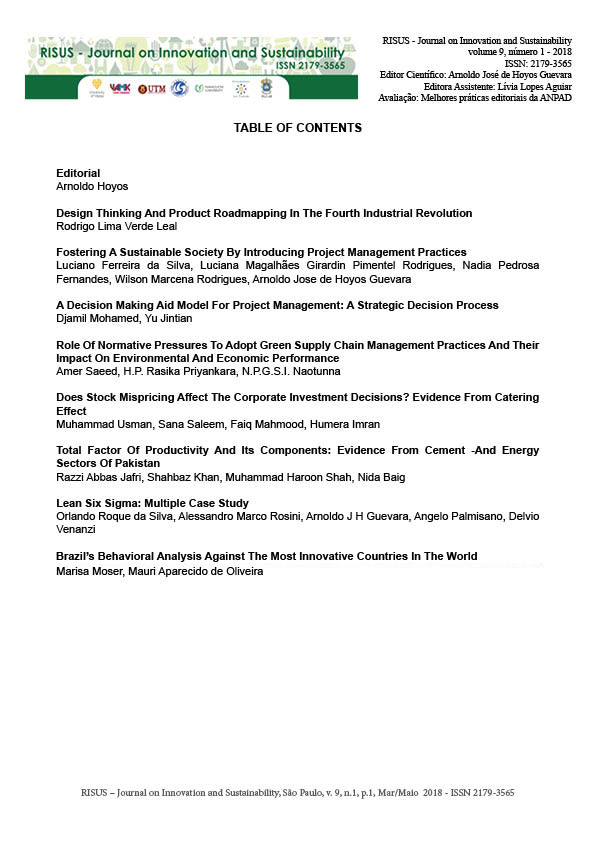ROLE OF NORMATIVE PRESSURES TO ADOPT GREEN SUPPLY CHAIN MANAGEMENT PRACTICES AND THEIR IMPACT ON ENVIRONMENTAL AND ECONOMIC PERFORMANCE
DOI:
https://doi.org/10.24212/2179-3565.2018v9i1p35-42Palabras clave:
Normative pressures, Green supply chain management practices, Environmental performance, Economic performance, PakistanResumen
Businesses around the globe are facing tremendous pressures to improve their manufacturing practices to minimize their harmful effects on the environment. These pressures are being exerted from different stakeholders but in developing countries mostly there are powerful suppliers and customers, which can change the choices of decision makers in the local industry. According to institutional theory these pressures combined are called normative pressures. By using path modeling this study attempted to find out the role of normative pressures to adopt green supply chain management (GSCM) practices and the impact of those adopted practices on environmental and economic performance of those companies through partial least square (PLS) structural equation modeling (SEM). Data was collected from 134 manufacturing companies in Pakistan through a questionnaire. Path analysis results confirmed that normative pressures have positive and significant impact on adopting the GSCM practices and subsequently these practices improve the environmental performance of the companies in Pakistan. Results also confirmed many existing studies that GSCM practices directly do not improve economic performance but environmental performance does have a significant positive effect on the economic performanceDescargas
Publicado
2018-03-31
Número
Sección
Papers
Licencia
This Journal is licensed under a Creative Commons Attribution-Non Commercial-No Derivers 4.0 International license.
1.The author (s) authorize the publication of the article in the journal;
2.The author (s) warrant that the contribution is original and unpublished and is not in the process of being evaluated in other journal (s);
3. The journal is not responsible for the opinions, ideas and concepts emitted in the texts, as they are the sole responsibility of its author (s);
4. The editors are entitled to make textual adjustments and to adapt the articles to the standards of publication.


